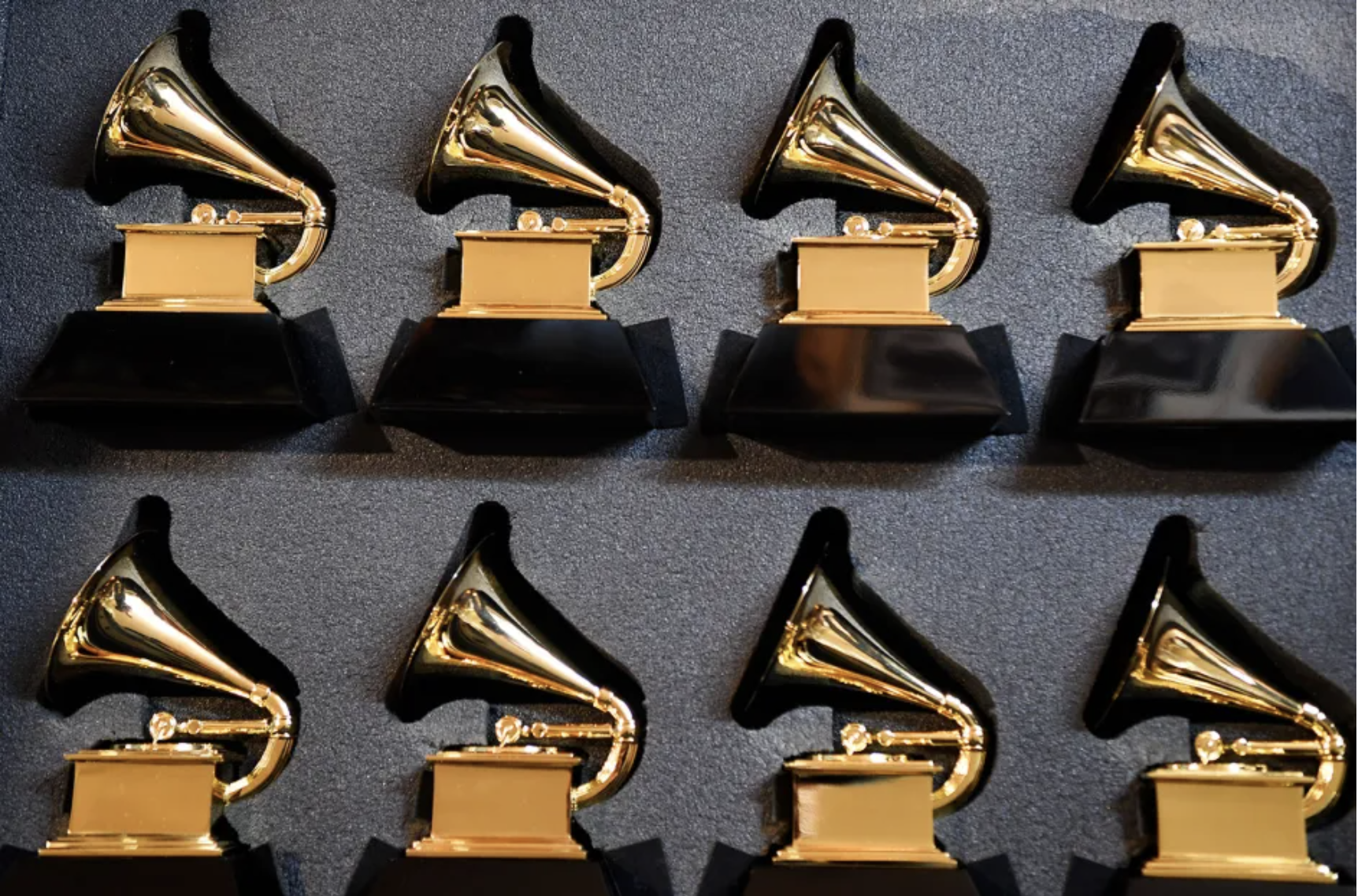Categories With the Most & ... | Hapilos
There are more than 20 times as many entries in this year's most populated category as in this year's least populated category.
All Grammys count the same toward someone’s career Grammy total, but we all know they’re not really on an equal footing. Every media outlet on Earth will report the winners of album of the year and record of the year next Feb. 4, but good luck trying to find out who won best regional roots music album (we’ll have it, of course).
Some categories are far more competitive than others. There are more than 20 times as many entries in this year’s most populated category, song of the year (642), as in this year’s least populated category, best opera recording (28). (Nearly 23 times, actually, but we didn’t want to sound too nerdy.)
Since final-round voting for the 66th Grammy Awards opened Wednesday (Oct. 11), Grammy voters have been conscientiously wading through the entry lists for 88 of the 94 Grammy categories (or so Academy leaders fervently hope). The nominees in the other six categories are determined by committees.
Voters may find some surprises as they study the entry lists. The number of entries in three of the General Field categories (widely known as the Big Four) dropped again this year, perhaps due to the Academy’s new policy, now in its second year, of charging a fee for entries beyond five “courtesy entries.”
There are 615 entries for record of the year, down slightly from 619 last year; 476 entries for album of the year, down from 518; and 642 entries for song of the year, down from 686. The one Big Four category that saw a jump in entries was best new artist, with 405 entries this year, up from 368 last year.
Taking a longer view, this year’s 615 entries for record of the year is the smallest number in that category since 2004. This year’s 476 entries for album of the year is the least since 1995. This year’s 642 entries for song of the year is the least since 2005.
This is actually a positive trend. The entry lists were far too long. It’s asking too much of busy people to expect them to diligently wade through a list of 1,463 entries — and that was just for one category (record of the year) three years ago.
Here’s the newish rule, and the rationale behind it, taken from the 66th Grammy Awards rules and guidelines booklet: “The per-entry fee structure encourages entrants to consider the value of each entry and make mindful decisions to put forward work that they truly believe is Grammy-worthy. All professional and voting members of the Recording Academy will receive five courtesy entries every year. Any member who would feel burdened by the entry fees can request the fees be waived by reaching out to the awards department.”
This marks the first year that songwriter of the year, non-classical, and producer of the year, non-classical have been moved up to the General Field (which is now the Big Six, I guess). The number of entries for Songwriter of the year, non-classical, which is in its second year, is only about one-third of the number of entries for producer of the year, non-classical, which was introduced in 1974. (The exact totals are 58 and 195.) That’s probably because of the new category’s restrictive rules, which were intended to put the focus on songwriters who are not also artists or producers.
All three of the categories that were added this year had a healthy number of entries. There are 159 entries for best alternative jazz album, 122 for best African music performance, and 107 for best pop dance recording.
The most populated songwriting category (outside of song of the year) is best American roots song (297). Country, though generally thought of as a songwriter-driven genre, lags behind all other genres with 139 entries. (Nashville, you can do better.)
Here are all songwriting categories, ranked from most to least number of entries this year: song of the year (642), best American roots song (297), best rock song (271), best rap song (214), best R&B song (207), best contemporary Christian music performance/song (189), best gospel performance/song (175), best song written for visual media (144) and best country song (139).
The Recording Academy keeps track of the number of entries in each category. Here’s the relevant rule from the rules and guidelines booklet: “Each category shall have at least 40 distinct artist entries. If a category receives between 25 and 39 entries, only three recordings will receive nominations in that year.” That’s the case for both best opera recording, which as noted above, had 28 entries this year, and best música urbana album, which had 37.
The rules further state: “Should there be fewer than 25 entries in a category, that category will immediately go on hiatus for the current year – no award given – and entries will be screened into the next most logical category. If a category received fewer than 25 entries for three consecutive years, the category will be discontinued, and submissions will be entered in the next most appropriate category.” (That doesn’t apply to any categories this year.)
If you’re curious, the six categories where the nominations are determined by committees, rather than by voters at large, are best recording package, best boxed/special/limited edition, best album notes, best historical album, best remixed recording and best immersive audio album.
First-round voting for the 66th annual Grammy Awards opened on Wednesday (Oct. 11) and closes Oct. 20. Nominees will be announced on Nov. 10 (five days earlier than last year). The final-round voting window extends from Dec. 14 through Jan. 4, 2023 (same as last year). Winners will be announced on Sunday, Feb. 4, 2024, at Crypto.com Arena (formerly known as Staples Center) in Los Angeles.
Here are the categories with most and fewest entries this year.
Categories with the most entries
(in descending order)
Song of the year, 642
Record of the year, 615
Best music video, 592
Album of the year, 476
Best new artist, 405
Best jazz performance, 370
Best engineered album, non-classical, 350
Best instrumental composition, 340
Best rock performance, 335
Best arrangement, instruments and vocals, 314
Best alternative music performance, 301
Best American roots song, 297
Best pop solo performance, 281
Best global music performance, 280
Best rock song, 271
Categories with the fewest entries
(in ascending order)
Best opera recording, 28
Best música urbana album, 37
Best gospel album, 45
Best choral performance, 49
Best large jazz ensemble album, 50
Best roots gospel album, 50
Best traditional blues album, 51
Best contemporary blues album, 51
Best spoken word poetry album, 51
Best Latin rock or alternative album, 52
Best tropical Latin album, 54
Best musical theater album, 56
Best Latin jazz album, 57
Best classical solo vocal album, 58
Songwriter of the year, non-classical, 58
Source link: Billboard


